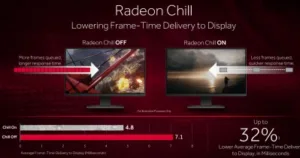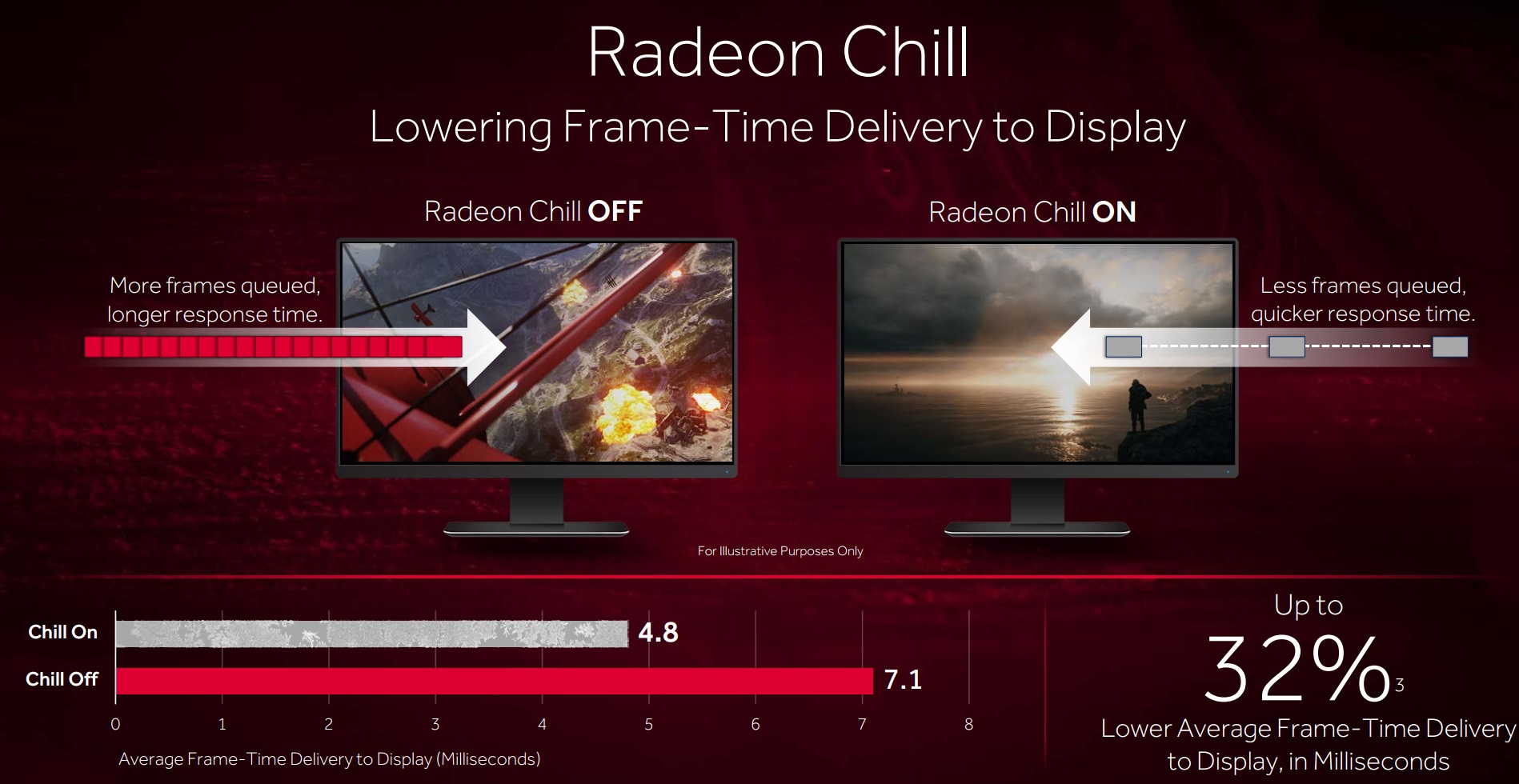AMD has added support for the Asynchronous Space Warp technology from Oculus, which is a development of ATW (Asynchronous Time Warp) which allows judder reducing frame warping for both translational (side to side) and rotational (turning) head movements. The support of the more recent technology might reduce the level of hardware needed to support Oculus hardware. At the time of writing, it wasn’t clear which GPUs from AMD will be supported.
There are also updates to Freesync support. Under the name Radeon Chill, which can reduce the frame rate being rendered depending on the application that is running. AMD said that the technique can make applications more responsive as well as allowing better power consumption. By reducing the potential queue of frames to be rendered, the average frame time delay can be reduced from 7.1ms to 4.8ms (see graphic below). (Tom’s Hardware thought it looked good and thought it could reduce the power and cooling of GPUs as well as improving speed).


